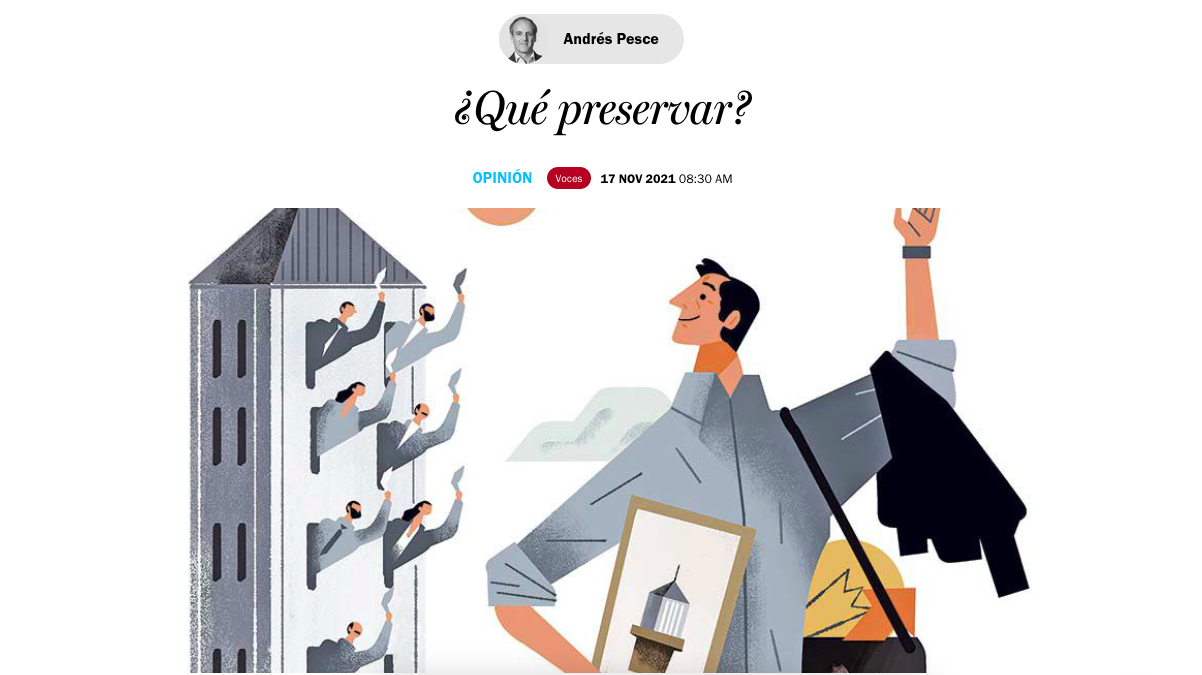Nov 17, 2021
Riane Eisler's research was recently highlighted in an opinion piece published in Spanish in La Tercera titled ¿Qué preservar? by Andrés Pesce. La Tercera is a daily newspaper published in Santiago, Chile.
"No es cierto que estamos cableados para que el egoísmo sea el motor de nuestras motivaciones; la capacidad de colaborar distingue mucho más al homo sapiens de otras especies que el “dominio del más fuerte”. En lo que Riane Eisler y Douglas Fry, en su libro “Alimentando Nuestra Humanidad[1]”, denominan el continuo Sistemas de Dominancia Sistema de Colaboración, el Capital de Riesgo-Inversión de Impacto se ubican en la zona de sistemas de colaboración que condicionan a nuestra biología para sacar lo mejor de la humanidad: la empatía, el cuidado por el otro, la generosidad y el bien común más allá de la “tiranía de los genes egoístas” que a veces parecieran gobernar nuestra sociedad."
"It is not true that we are wired so that selfishness is the engine of our motivations; the ability to collaborate distinguishes homo sapiens much more from other species than the "dominance of the strongest." In what Riane Eisler and Douglas Fry, in their book "Nurturing Our Humanity [1]", call the continuous Systems of Dominance Collaboration System, Risk Capital-Impact Investment is located in the area of collaboration systems that condition to our biology to bring out the best in humanity: empathy, care for the other, generosity and the common good beyond the "tyranny of selfish genes" that sometimes seem to rule our society."
Read the entire article in Spanish here.
See also: ‘El Cáliz y la Espada’ lures in a new generation of Spanish readers



Leave a Reply